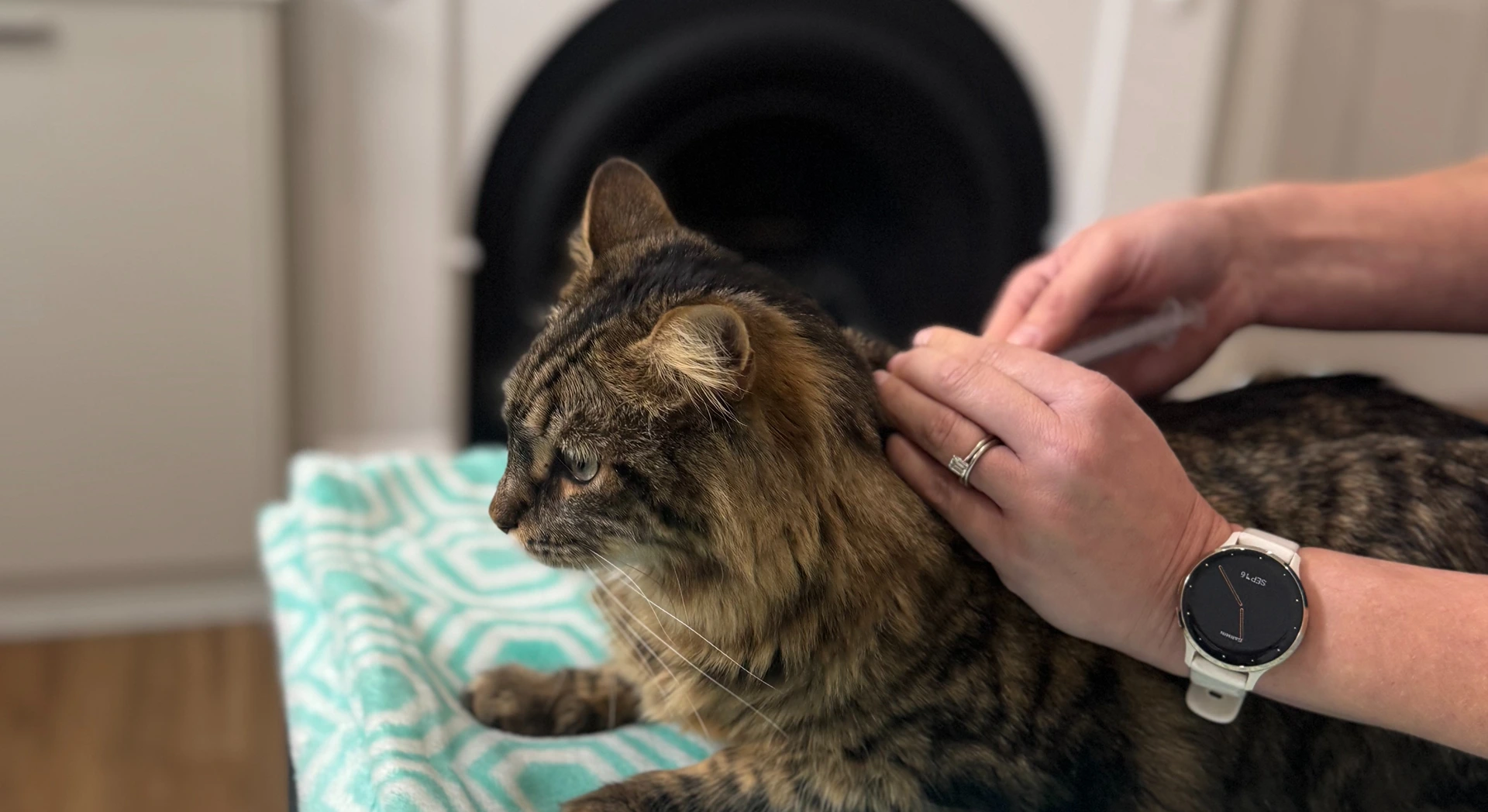Pet Vaccinations in Melbourne
Protect your dog, cat, or rabbit from serious, potentially fatal diseases.


What are pet vaccinations?
They don’t just protect individual pets, they help reduce the spread of disease in the wider pet population too.
Types of pet vaccinations
Dogs and cats both have “core” vaccines that are required for boarding kennels/catteries, doggy day care and more.
There are also “non-core” pet vaccines that are provided based on location and lifestyle.
World Health guidelines on core pet vaccines have recently changed. Contact us to check your pet’s vaccinations are up to date and ensure they’re fully protected
Dog vaccines
Core vaccinations include:
- Parvovirus - causes severe vomiting and diarrhoea, can be fatal
- Distemper - causes respiratory, neurological and/or gastrointestinal symptoms
- Canine Adenovirus - causes infectious hepatitis
- Parainfluenza (flu) - a respiratory virus commonly referred to as flu
- Bordatella Brochiseptica - the primary cause of kennel cough
- Leptospirosis - causes potentially life threatening kidney and liver damage
Cat vaccines
Core vaccinations include:
- Feline parvovirus (FPV) - highly contagious and often fatal
- Feline calicivirus (FCV) - upper respiratory and oral disease
- Feline herpesvirus (FHV-1) - causes respiratory disease
- Feline leukaemia virus (FeLV) - higher risk in breeding colonies or multi-cat environments
Other:
- Feline immunodeficiency virus (FIV) - spread by fighting with an infected cat
- Chlamydia felis - upper respiratory symptoms
Rabbit vaccines
Core vaccinations include:
We vaccinate our rabbits against Rabbit Calicivirus (also known as Viral Hemorrhagic Disease or RVHD).
This is a highly contagious disease that can be fatal.

Why vaccinate your pet?
Vaccinations safely protect your pet and help reduce disease in the wider animal community.
When to vaccinate?
Puppies and kittens require a primary course of two or three vaccinations to build their immunity, and the timing of these vaccinations is crucial.
Adult dogs, cats, and rabbits receive annual vaccinations, which are combined with their recommended yearly full veterinary health check.
If your pet’s lifestyle changes such as your indoor cat starts going outdoors or your dog spends more time in a rural area, please contact us.
We may need to adjust their vaccination type or schedule to ensure they stay properly protected.
Your vaccination schedule
- Puppies and kittens require three vaccinations, 3-4 weeks apart with the final one being at 16 weeks or older
- Adult dogs and cats need a yearly vaccination. Some components of the vaccination last for three years, but some only last one year so these ones are given annually
- We recommend rabbits have their first vaccination from 10 weeks old and then yearly booster vaccinations.
FAQs about pet vaccinations
We can find this out for you by getting in touch with your pet’s previous vet. This is best done prior to your appointment. The information may also be on a previous vaccination card you may have at home.
If the information is unobtainable, don’t worry - we can work out what they need.
Absolutely. Vaccinating older pets is really important, as they may be less able to cope if they contract a condition that we vaccinate against.
The vast majority of pets have no reaction at all. Some pets experience lethargy, mild fever or inappetence for 24-48 hours after a vaccination, much like we do.
Very occasionally a dog can have a more profound reaction - this usually occurs within 15-30 minutes of the vaccine and can present as severe lethargy or collapse, vomiting, hives, facial swelling, breathing difficulties.
If your pet has had a vaccine reaction in the past, we can administer an anti-inflammatory alongside or before the vaccine to reduce the potential reaction.
If your pet has never been vaccinated, we can give them a primary course (2-3 separate vaccines over a few weeks), which will take effect quickly.
Ready to get your pet vaccinated?
Vaccinations are essential to protect your pet from serious and potentially life-threatening diseases, keeping them healthy and happy throughout their life.
Book an appointment today.webp)


